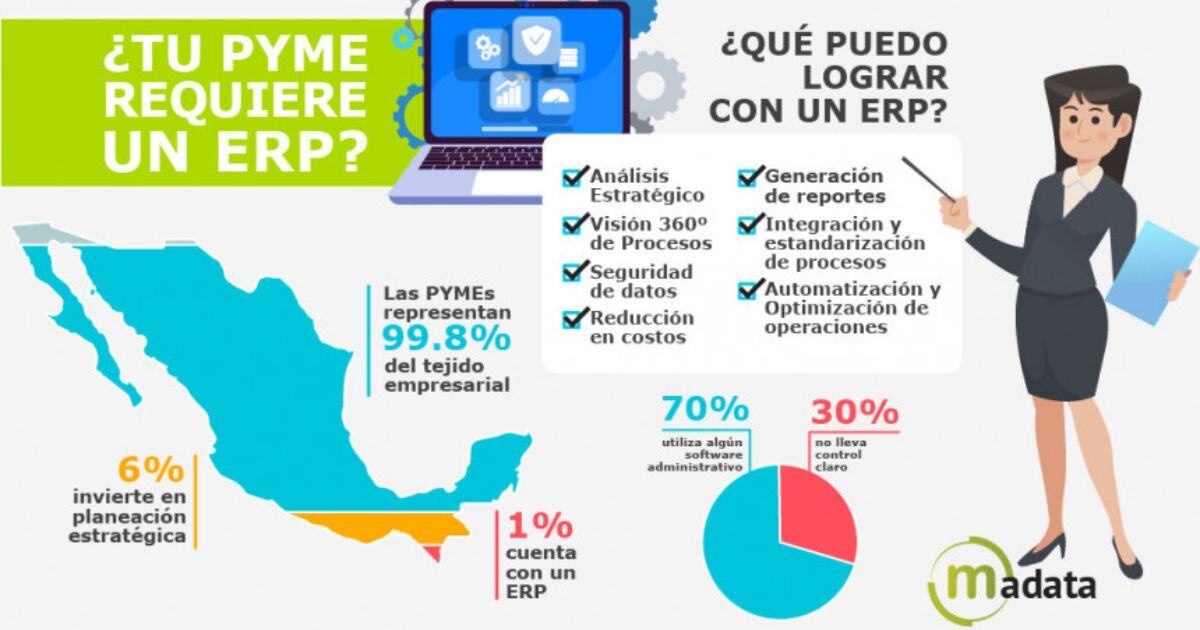Did you know 95% of organizations see significant process improvements after implementing an Enterprise Resource Planning (ERP) system? The right ERP solution can significantly enhance efficiency, streamline operations, and provide a competitive edge in today's dynamic business environment.
An Enterprise Resource Planning system is a unified software platform that integrates various business processes across different functions, such as finance, human resources, supply chain, and customer relationship management. By centralizing data, ERPs provide real-time visibility and insights, enabling better decision-making and operational efficiency.
Our experts will explore the top 15 ERP system examples businesses should consider in 2025. This guide will assist you in making an informed decision when selecting an ERP solution for your organization.
What is an ERP System?
An ERP (Enterprise Resource Planning) system is an integrated software platform organizations use to manage and automate various business processes. At its core, an ERP system consolidates data from different departments into a unified database, ensuring that all parts of the organization can access up-to-date information. The critical components of an ERP system typically include finance, human resources, supply chain management, manufacturing, and customer relationship management (CRM).
Importance of Choosing the Right ERP System
Selecting the appropriate ERP system for your business is critical to achieving the desired outcomes, such as enhanced productivity and streamlined operations. The right ERP solution should align with your business's size, industry, and specific operational needs. An effective ERP system supports current requirements and scales as your business grows, ensuring long-term utility and adaptability.
Core Components of an ERP System
-
Finance: The financial module handles accounting, financial reporting, budgeting, and asset management. It ensures transparent and accurate financial operations across the organization.
-
Human Resources (HR): The HR module manages employee records, payroll, recruitment, performance evaluations, and employee benefits. It helps efficiently handle all staff-related activities and compliance.
-
Supply Chain Management (SCM): This component optimizes the flow of products and services from procurement to delivery. It encompasses inventory, order fulfillment, logistics, and supplier relationship management.
-
Manufacturing: The manufacturing module assists in production planning, scheduling, and control. It helps manage the production lifecycle to ensure products are manufactured efficiently and meet quality standards.
-
Customer Relationship Management (CRM): The CRM module handles customer interactions, sales, and service management, enhancing customer satisfaction and retention.
Benefits of an ERP System
Implementing an ERP system delivers numerous benefits to organizations:
-
Efficiency: An ERP system automates routine tasks, reducing manual effort and errors, thus enhancing productivity.
-
Data Integration: By centralizing data, it eliminates data silos and enables seamless information flow across departments.
-
Real-Time Reporting: Real-time data access and analytics facilitate swift decision-making, improving responsiveness to market changes.
-
Scalability: ERPs are designed to grow with the business, accommodating new functionalities and expanding user bases without significant overhauls.
An ERP system is indispensable for modern businesses aiming to synergize their operations, improve efficiency, and make informed decisions. Choosing the right ERP system tailored to your business needs can substantially improve overall performance and competitiveness.
Top ERP System Examples
1. SAP S/4HANA
Overview: SAP S/4HANA is an industry leader in ERP systems, renowned for its robust features and comprehensive functionality. This next-generation ERP suite is built on the SAP HANA in-memory database, enabling enterprises to process vast amounts of data quickly and efficiently. The platform is designed to drive digital transformation and give businesses the agility to stay competitive in a rapidly evolving market.
Key Features:
-
Real-Time Analytics: SAP S/4HANA offers powerful real-time analytics, allowing users to access and analyze data instantaneously. This capability enables quick decision-making and provides a holistic view of operations, ensuring businesses respond promptly to market changes.
-
Advanced AI Capabilities: The system integrates advanced artificial intelligence and machine learning functionalities, which help automate routine tasks, predict trends, and provide actionable insights. These capabilities enhance operational efficiency and support informed strategic planning.
Best For: SAP S/4HANA is best suited for large enterprises that require a robust and scalable ERP solution. It caters to complex business operations and supports global organizations with its extensive range of features and industry-specific solutions. Large enterprises benefit from the system's ability to handle high volumes of transactions and its scalability to support future growth.
2. Oracle ERP Cloud
Overview: Oracle ERP Cloud is a comprehensive, cloud-based solution designed to streamline business processes and provide a unified platform for managing various organizational functions. Known for its integration with other Oracle products and a robust suite of tools, Oracle ERP Cloud facilitates efficient and effective management of critical business operations, from finance to human resources to procurement.
Key Features:
-
Integration with Other Oracle Products: One of Oracle ERP Cloud's key strengths is its seamless integration with other Oracle applications, such as Oracle HCM Cloud and Oracle SCM Cloud. This connectivity ensures a cohesive ecosystem where data flows effortlessly between different systems, enhancing visibility and coordination across departments.
-
Strong Financial Management Tools: Oracle ERP Cloud offers powerful financial management capabilities, including comprehensive accounting, budgeting, and financial reporting tools. Its advanced analytics and real-time insights enable organizations to make informed financial decisions and optimize financial performance.
Best For: Oracle ERP Cloud is ideally suited for large to mid-sized companies seeking a versatile and scalable ERP solution. Its extensive features address the complex needs of larger enterprises, while its cloud architecture offers the flexibility and scalability to adapt to the growth of mid-sized organizations. Companies looking for robust financial management and seamless integration within an established ecosystem will find Oracle ERP Cloud an excellent fit.
3. Microsoft Dynamics 365
Overview: Microsoft Dynamics 365 is a versatile ERP system that integrates seamlessly with Microsoft Office and other Microsoft products, creating a cohesive ecosystem for business operations. This cloud-based solution offers a unique blend of ERP and Customer Relationship Management (CRM) capabilities to streamline processes across various departments. By leveraging familiar tools within the Microsoft suite, Dynamics 365 enhances user productivity and ensures a smoother transition for teams adopting the new system.
Key Features:
-
User-Friendly Interface: Microsoft Dynamics 365 is known for its intuitive and user-friendly interface. Like other Microsoft applications, the familiar layout reduces the learning curve and encourages quick adoption among users. Comprehensive dashboards and built-in tools simplify data management and analysis.
-
Modular Design: Dynamics 365's modular architecture allows organizations to start with what they need and gradually add more functionalities as their business grows. This flexibility enables customization according to specific business needs without overwhelming users with unnecessary features, ensuring scalability and long-term utility.
Best For: Microsoft Dynamics 365 is ideal for businesses of all sizes, from small enterprises to large corporations, particularly those already utilizing Microsoft products. Its seamless integration with tools like Microsoft Office, SharePoint, and Power BI makes it an excellent choice for organizations seeking to unify their operations within a Microsoft-centric environment. The system's ability to cater to a broad spectrum of business requirements and scalability makes it a versatile solution suitable for various industries.
4. Infor CloudSuite
Overview: Infor CloudSuite provides industry-specific cloud ERP solutions tailored to meet the unique needs of various sectors. This advanced system combines deep industry functionality with a robust technological backbone to drive efficiency and innovation. By leveraging cloud technology, Infor CloudSuite offers flexibility, scalability, and access to critical business data from anywhere, ensuring that organizations can operate seamlessly in a dynamic business environment.
Key Features:
-
Advanced Analytics: Infor CloudSuite includes sophisticated analytics tools that provide real-time insights into various business processes. These analytics help organizations make data-driven decisions, improve operational efficiencies, and identify growth opportunities.
-
AI-Driven Insights: The system integrates artificial intelligence to deliver actionable insights, automate routine tasks, and optimize workflows. These AI capabilities enhance productivity, support predictive maintenance, and facilitate more informed strategic planning.
Best For: Infor CloudSuite is designed to cater to various industries, including healthcare, manufacturing, automotive, and more. Its industry-specific approach ensures the system can address each sector's particular challenges and requirements. It is an ideal ERP solution for organizations seeking tailored functionality and customization to support their unique business processes.
5. NetSuite ERP
Overview: NetSuite ERP is Oracle's comprehensive cloud ERP solution designed to streamline and automate various business operations. Known for its versatility and robust functionality, NetSuite ERP offers a suite of integrated applications that support financial management, customer relationship management (CRM), e-commerce, and more. Its cloud-based architecture ensures accessibility from any location, enabling businesses to maintain continuity and flexibility in their operations.
Key Features:
-
Strong Financial Management: NetSuite ERP excels in financial management, providing tools for accounting, income management, budgeting, and financial reporting. The system's real-time financial analytics aid in making informed decisions, enhancing the organization's overall financial health.
-
E-commerce Integration: The platform offers seamless e-commerce integration, allowing businesses to manage their online and offline sales channels within a single system. This integration ensures consistency across different sales platforms, improves inventory management, and enhances the customer experience by providing a unified view of interactions and transactions.
Best For: NetSuite ERP suits mid-sized to large businesses seeking a versatile and scalable ERP solution. Its strong financial management capabilities and comprehensive e-commerce integration make it an excellent choice for companies looking to streamline operations, improve financial oversight, and integrate multiple business processes into a cohesive system. The platform's flexibility and extensive feature set cater to the needs of growing businesses across various industries, supporting their expansion and operational efficiency.
6. Epicor ERP
Overview: Epicor ERP is a robust enterprise resource planning system tailored to manufacturing and distribution sectors. The platform is designed to meet the specific needs of these industries, providing tools that enhance productivity, streamline operations, and promote growth. With a user-friendly interface and industry-specific functionalities, Epicor ERP supports businesses in achieving operational excellence and maintaining a competitive edge in the market.
Key Features:
-
Production Management: Epicor ERP offers comprehensive production management capabilities, including planning, scheduling, and monitoring. These tools ensure that manufacturing processes run smoothly, helping to optimize production schedules, reduce downtime, and improve product quality.
-
Supply Chain Management: The system's supply chain management features enable businesses to effectively manage their supply chains from beginning to end. This includes procurement, inventory management, and distribution. The integrated approach ensures seamless coordination between suppliers, manufacturers, and customers, improving overall supply chain visibility and performance.
Best For: Epicor ERP is ideally suited for manufacturing and distribution industries. Its specialized features address these sectors' unique challenges and requirements, making it an excellent choice for businesses seeking to enhance operational efficiency, maintain high product quality, and improve supply chain management. The system's scalability and flexibility support both mid-sized and large enterprises, allowing them to adapt to changing market demands and achieve sustained growth.
7. IFS Applications
Overview: IFS Applications is an agile ERP solution tailored for businesses with complex operational requirements. Known for its flexibility and comprehensive functionalities, IFS Applications enables organizations to manage their operations efficiently. The platform's user-centric design and adaptability make it a suitable choice for industries that need robust support for intricate processes and dynamic environments.
Key Features:
-
Asset Management: IFS Applications excel in asset management, providing tools for comprehensive monitoring and maintenance of physical assets. This capability ensures optimal asset performance, extends the lifespan of equipment, and minimizes downtime through predictive and preventive maintenance.
-
Project Management: The system offers advanced project management features that facilitate the planning, execution, and control of projects. These tools support project-based industries by enhancing coordination, resource allocation, and timeline management, boosting project success rates and efficiency.
Best For: IFS Applications is ideal for complex industries such as aerospace, defense, and energy sectors. Its robust asset and project management functionalities make it well-suited for organizations requiring meticulous oversight and coordination of extensive, high-stakes operations. By addressing the unique challenges of these sectors, IFS Applications helps businesses achieve operational excellence and maintain a competitive edge.

8. Acumatica Cloud ERP
Overview: Acumatica Cloud ERP is a flexible, cloud-based ERP solution designed to cater to businesses' unique needs. Its modern architecture gives organizations the agility and scalability necessary to thrive in dynamic markets. By leveraging cloud technology, Acumatica ensures that users can access critical business data from anywhere, fostering greater collaboration and efficiency across distributed teams.
Key Features:
-
Broad Range of Modules: Acumatica offers comprehensive modules covering various business functions, including finance, customer relationship management (CRM), project management, distribution, and manufacturing. This extensive functionality enables organizations to select and implement only the modules that meet their specific requirements, avoiding unnecessary complexities.
-
Customizable: One of Acumatica's standout features is its high degree of customization. Businesses can tailor the system to align with their unique processes and workflows, ensuring a bespoke ERP solution that maximizes operational efficiency. The platform's flexible design supports custom dashboards, reports, and workflows, allowing users to create an environment that best suits their needs.
Best For: Acumatica Cloud ERP is ideally suited for small to mid-sized businesses seeking a versatile, scalable ERP solution. Its broad range of modules and customizable features make it an excellent choice for companies looking to streamline operations, improve decision-making, and support growth. Acumatica's cloud-based nature ensures accessibility and flexibility, making it a robust option for businesses aiming to stay competitive in a rapidly evolving market.
9. Sage X3
Overview: Sage X3 is a comprehensive enterprise resource planning (ERP) solution designed to meet the specific needs of manufacturing and distribution industries. The platform focuses on streamlining core business processes, offering robust functionalities that enhance operational efficiency and support business growth. Sage X3's flexible and scalable nature makes it an ideal solution for companies seeking to optimize manufacturing and distribution workflows.
Key Features:
-
Inventory Management: Sage X3 excels in inventory management, providing tools for tracking stock levels, managing orders, and optimizing warehouse operations. The system ensures real-time inventory data visibility, helping businesses reduce excess stock, prevent stockouts, and improve overall supply chain efficiency.
-
Customer Relationship Management (CRM): The platform includes integrated CRM capabilities that help businesses nurture customer relationships, manage sales processes, and track customer interactions. This holistic approach enhances customer service, drives sales growth, and enables better customer insights.
Best For: Sage X3 is best suited for mid-sized enterprises in the manufacturing and distribution sectors. Its powerful inventory management and CRM features make it an excellent choice for companies looking to streamline operations, improve customer relationships, and support business expansion. The system's flexibility ensures that it can adapt to the evolving needs of growing businesses, providing a sustainable ERP solution for long-term success.
10. SYSPRO
Overview: SYSPRO is a comprehensive ERP solution for the manufacturing and distribution sectors. This platform is designed to tackle these industries' unique challenges by optimizing various business processes and enhancing overall operational efficiency. With a strong focus on usability and integration, SYSPRO empowers organizations to streamline workflows, reduce costs, and improve customer satisfaction.
Key Features:
-
Inventory Optimization: SYSPRO includes powerful tools that help businesses maintain optimal stock levels, reduce excess inventory, and minimize stockouts. This feature ensures that materials and products are always available when needed, improving supply chain efficiency and customer fulfillment rates.
-
Production Scheduling: The system's advanced production scheduling capabilities enable manufacturers to plan, execute, and monitor production processes effectively. These tools ensure that production schedules are met, resources are utilized efficiently, and downtime is minimized, leading to higher productivity and better product quality.
Best For: SYSPRO is ideally suited for businesses in the manufacturing and distribution sectors. Its specialized features address these industries' specific demands, making it an excellent choice for companies seeking to optimize inventory management, streamline production schedules, and enhance overall operational efficiency. The system's robust functionality and scalability support the growth and dynamism typical of manufacturing and distribution enterprises, ensuring they remain competitive.
11. Odoo
Overview: Odoo is an open-source ERP solution that leverages a modular approach to cater to the diverse needs of businesses. This versatility allows organizations to pick and choose from a wide array of applications, implementing only those functionalities that align with their specific operational requirements. The open-source nature of Odoo fosters a highly customizable environment, enabling businesses to tailor the system to their unique processes and workflows without the constraints of proprietary software.
Key Features:
-
Wide Range of Applications: Odoo offers an extensive suite of applications covering various business functions such as accounting, inventory, human resources, project management, and e-commerce. This comprehensive range ensures businesses can operate efficiently, with streamlined processes across all departments.
-
Customizable: One of Odoo's primary advantages is its high degree of customizability. Organizations can modify existing applications or develop new modules to meet their needs. The platform's flexibility enables businesses to create a bespoke ERP solution tailored precisely to their operational requirements, enhancing overall efficiency and user satisfaction.
Best For: Odoo is ideally suited for small to mid-sized businesses seeking a versatile and scalable ERP solution. The platform's modular approach allows these organizations to start with the basic applications they need and gradually expand their ERP capabilities as their business grows. The customizability of Odoo ensures that it can adapt to the evolving needs of growing companies, providing a robust and sustainable solution for long-term success.
12. Workday
Overview: Workday is a leading enterprise cloud application known for its robust HR and finance capabilities. The platform is designed to provide comprehensive human capital management (HCM) and financial management solutions, enabling organizations to streamline their operations and make data-driven decisions. Workday's user-friendly interface and innovative features support modern businesses' dynamic needs, ensuring operational efficiency and strategic growth.
Key Features:
-
Human Capital Management (HCM): Workday excels in HCM, offering an extensive suite of tools for managing employee lifecycle processes, from recruitment and onboarding to performance management and career development. The platform's HCM capabilities help businesses attract, retain, and develop top talent, fostering a productive and engaged workforce.
-
Financial Management: Workday's financial management features give businesses real-time insights into their economic performance. The platform includes budgeting, forecasting, and financial reporting tools, ensuring accurate and timely financial data. This functionality supports better financial planning and decision-making, driving overall business success.
Best For: Workday is ideally suited for medium to large enterprises. Its powerful HCM and financial management capabilities make it an excellent choice for businesses looking to enhance their HR and finance functions. The platform's scalability ensures it can support the growth of organizations, providing the flexibility and efficiency needed to navigate complex business environments and maintain a competitive edge in the market.
13. Plex Systems
Overview: Plex Systems offers a cloud ERP solution specifically designed for manufacturing. With a strong emphasis on connecting every facet of the manufacturing process, Plex Systems supports businesses in managing their operations efficiently from anywhere. The platform's cloud-based nature provides manufacturers with real-time data access and insights, fostering improved collaboration and decision-making.
Key Features:
-
Production Management: Plex Systems excels in production management, providing tools that oversee the entire production lifecycle. This includes everything from materials management and production scheduling to shop floor control and performance tracking. These capabilities ensure that production processes are optimized, increasing productivity and reducing waste.
-
Quality Control: The system features robust quality control tools that help manufacturers maintain high product quality standards. These tools facilitate real-time quality monitoring, issue tracking, and compliance management, ensuring that products meet industry standards and regulatory requirements.
Best For: Plex Systems is ideally suited for businesses within the manufacturing sector. Its specialized features address manufacturers' unique challenges, making it an excellent choice for companies looking to enhance production efficiency and maintain stringent quality standards. Plex Systems' cloud-based infrastructure ensures scalability and flexibility, allowing manufacturers to adapt swiftly to market changes and drive operational excellence.
14. QAD
Overview: QAD is a comprehensive cloud ERP solution for global manufacturing companies. Its robust platform provides the tools and functionalities to streamline and optimize manufacturing operations internationally. By leveraging cloud technology, QAD ensures that users can access critical business data in real-time from anywhere, enhancing global collaboration and efficiency.
Key Features:
-
Supply Chain Management: QAD offers advanced supply chain management capabilities that help businesses manage their supply chains more effectively. The platform includes demand planning, procurement, production scheduling, and logistics management tools, ensuring that supply chain processes are coordinated and efficient. This leads to improved resource utilization, reduced costs, and increased productivity.
-
Customer Management: The system integrates comprehensive customer management features that aid businesses in nurturing customer relationships and managing sales processes. QAD helps companies enhance customer service, drive sales growth, and improve customer satisfaction by providing a holistic view of customer interactions and preferences.
Best For: QAD is ideally suited for manufacturing and supply chain businesses. Its specialized features meet the unique demands of these sectors, making it an excellent choice for companies aiming to streamline operations, improve supply chain efficiency, and maintain strong customer relationships. The cloud-based nature of QAD ensures flexibility and scalability, supporting the dynamic needs of global manufacturing enterprises and helping them stay competitive in the market.
15. Unit4
Overview: Unit4 is an ERP solution designed explicitly for people-centric organizations. Unlike traditional ERP systems focusing heavily on manufacturing or supply chain processes, Unit4 prioritizes service-oriented and nonprofit organizations' unique needs and workflows. Its integrated suite of applications helps these organizations manage finances, human resources, projects, and more, all while keeping the focus on the people who drive their success.
Key Features:
-
Financial Management: Unit4 provides comprehensive financial management tools for budgeting, forecasting, accounting, and financial reporting. The system's advanced capabilities ensure accurate and insightful financial data, which supports strategic planning and decision-making.
-
Human Resource Management (HRM): Unit4 excels in HRM by offering features that cover the entire employee lifecycle. This includes recruitment, onboarding, workforce planning, talent management, and payroll. The platform helps organizations attract, retain, and develop their staff, facilitating a productive and engaged workforce.
Best For: Unit4 is ideally suited for service-oriented businesses and nonprofits. Its people-centric approach ensures that these organizations can optimize their core functions, such as financial and human resource management, while maintaining their mission and values. Unit4's flexibility and scalability make it a sustainable ERP solution for organizations looking to achieve long-term success in their respective fields.
 Embracing the Future with ERP Systems
Embracing the Future with ERP Systems
Choosing the right ERP system is a critical decision that can profoundly impact your business's efficiency and growth. We've explored 15 top ERP systems with unique strengths and applications.
When selecting an ERP system, consider your business's needs, industry requirements, and budget. Conduct thorough research and seek expert advice to make an informed decision.
At Madata IT, we specialize in helping businesses find and implement the best ERP solutions for their unique needs. Contact us today for a consultation and take the first step towards optimizing your business operations with a world-class ERP system.









